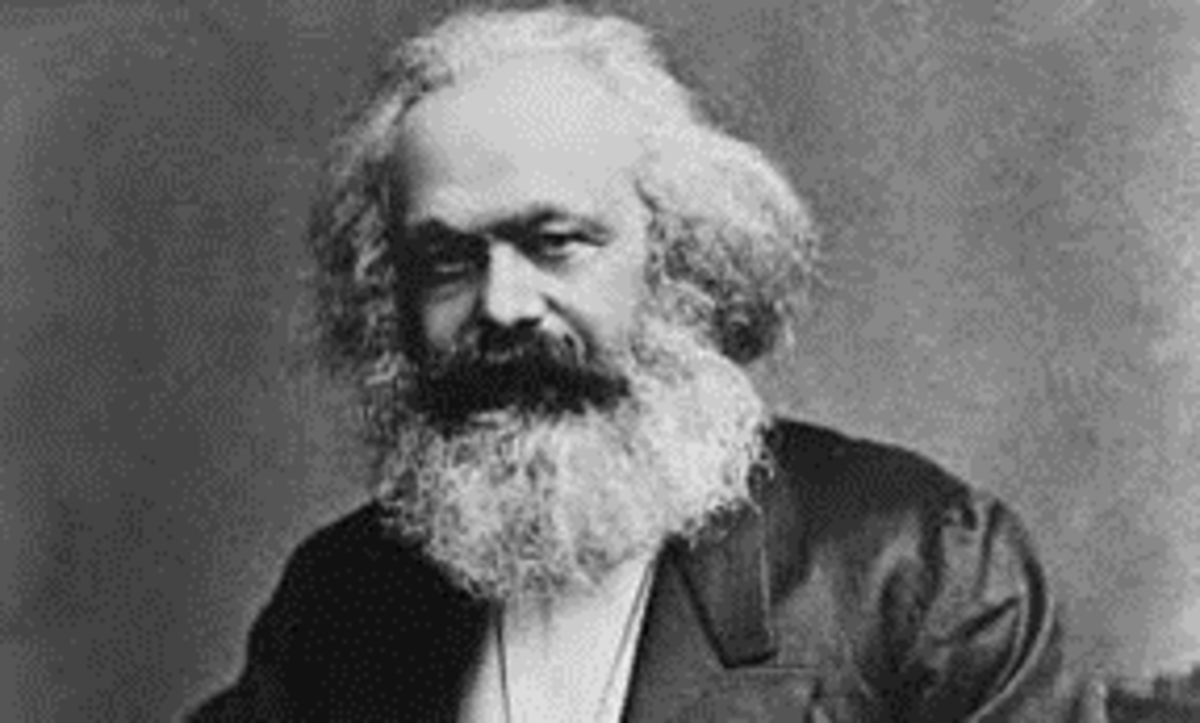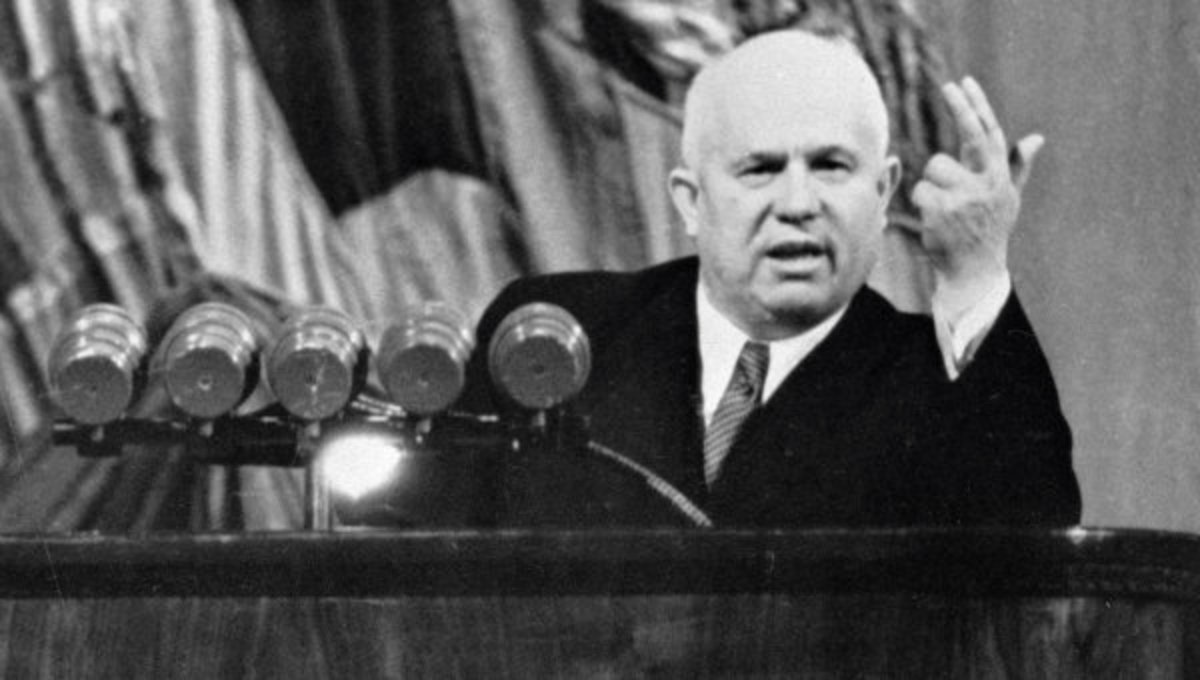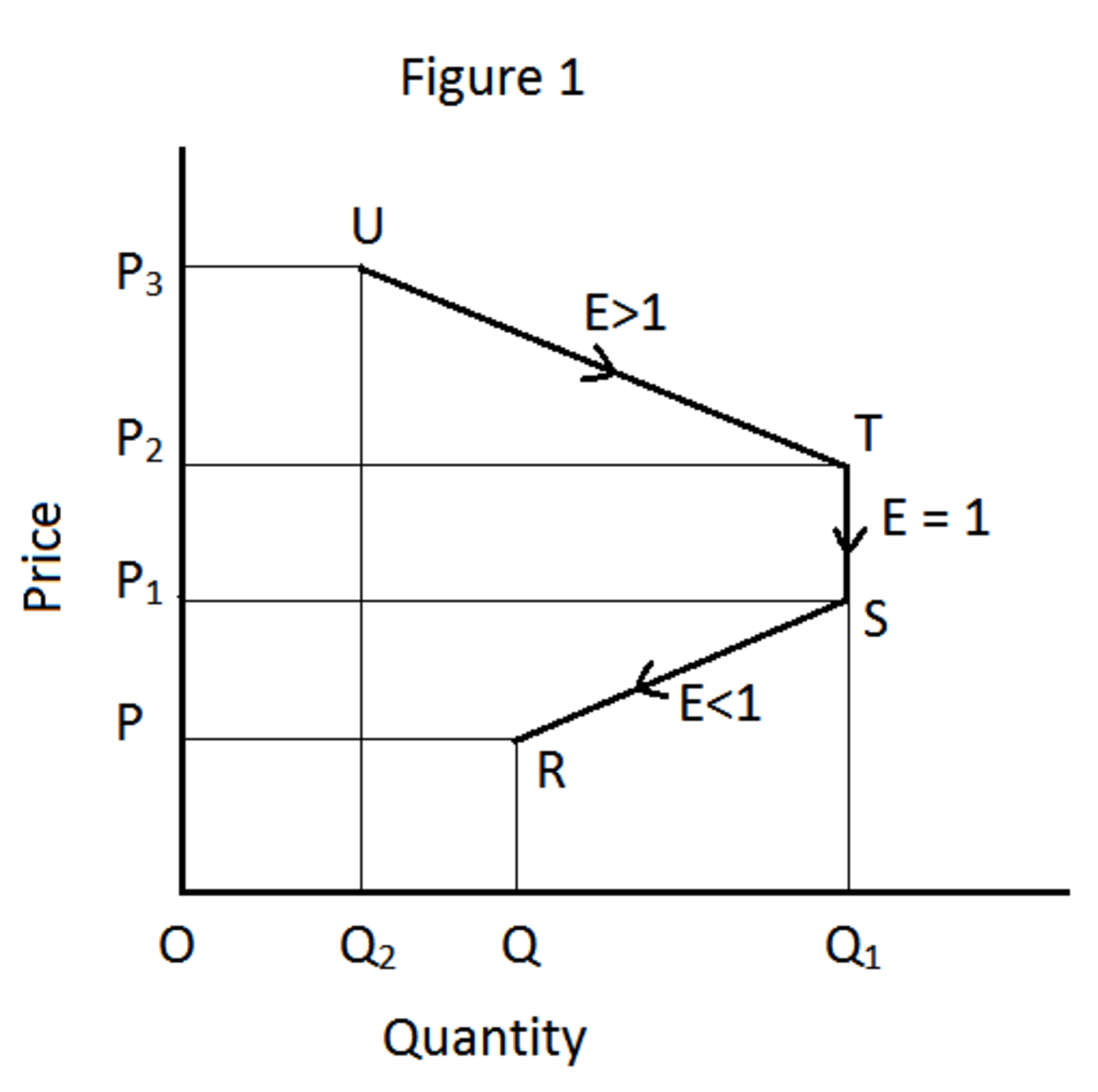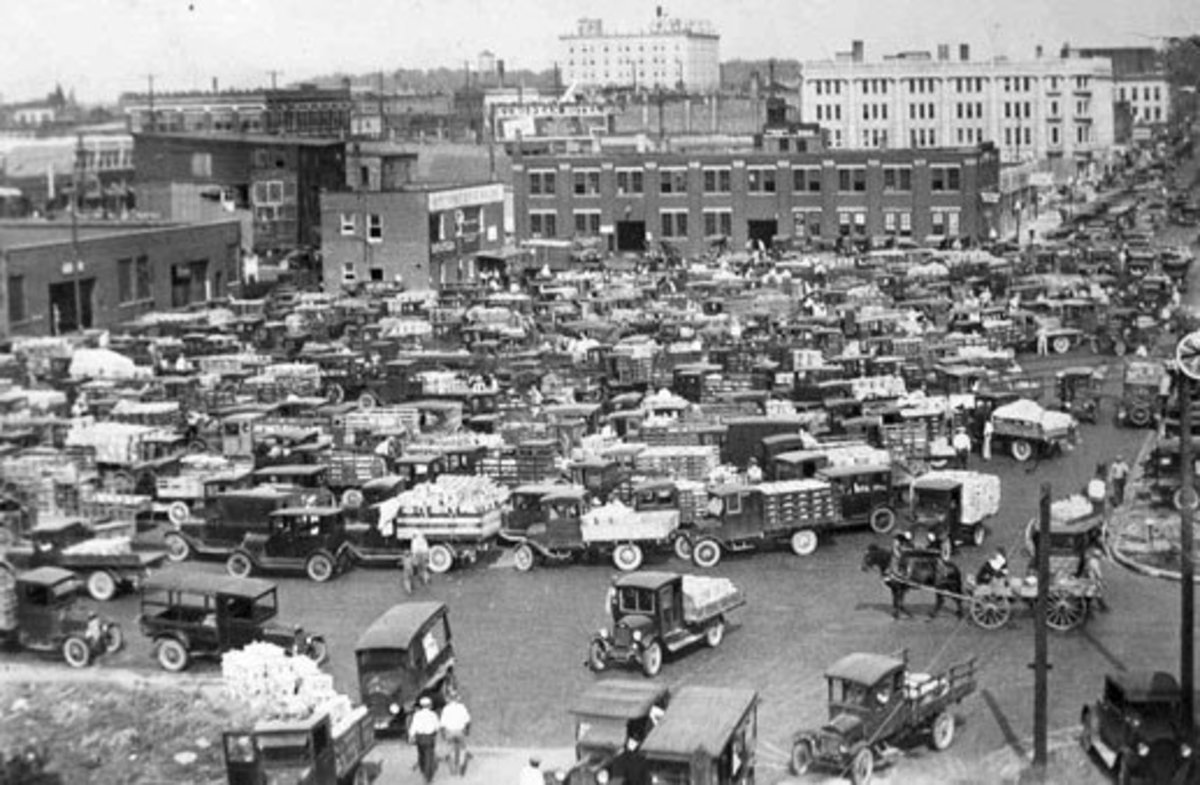The life of Karl Marx
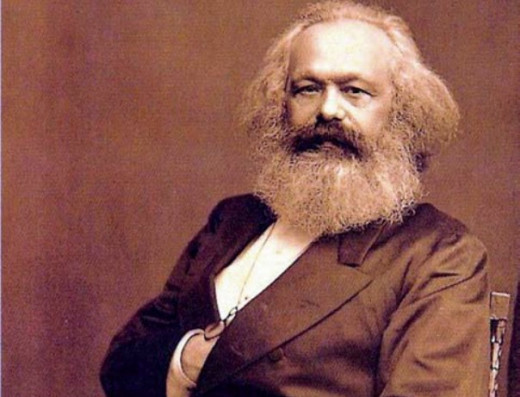
Influence
Marxism is one of the most powerful political ideologies in the history of contemporary man. One billion people live under governments that have adopted into practice his writings; and two of the largest countries in the world, Russia and China, claim him as their ideological father. His teachings are reviled and also revered by billions of people spanning the globe. Marxism, as a political philosophy, has led to revolution, social upheaval, and the deaths of over one hundred million people. Governments have formulated their foreign policies to either embrace him or to defend against the propagation of his writings. He is a sworn enemy of the church and a battle cry for those revolutionaries that seek to implant his teachings within their respective countries. He saw himself as the savior of the working class but advocated violent revolutionary change to achieve what he thought would be the emancipation of the common man. To understand Marxism we must first understand the complicated man who gave birth to the idea.
Early life
Karl Heinrich Marx was born on May fifth, 1818 to Heinrich and Henriette Marx in Trier, Germany. His ancestors were Jewish, the primary occupation on both sides of the family being that of an influential line of Rabbis.
Several years before the birth of his son Karl, Heinrich, a lawyer, had abandoned his Jewish faith in response to a series of edicts passed by King Frederick Wilhelm III of Prussia forbidding Jews within Prussia from obtaining or continuing occupations within the public sector. Between 1816 and 1819, Heinrich converted to Lutheranism in order to continue his law practice. It was in this environment, that of officially recognized Protestantism but of internal religious apathy that Karl Marx was born. Indeed, Marx claimed that his father’s considerable library did not contain a single volume on religious instruction. Because of his father’s ambivalence towards his Jewish heritage, Marx would later come to look upon his Jewish past as both a curse and a blessing, never truly understanding or even separating it from his own identity. Through his father’s personal library, Karl became familiar with the writings of Voltaire, Rousseau, Locke, Leibniz and other contemporary philosophers of that time. After completing his education at a state sponsored school, Karl left his ancestral home to attend the University of Berlin. It was at this university that he met the great love of his life, Jenny von Westphalen, whose influence was directly attributed to her father Ludwig von Westphalen, under whose guidance Marx first learned of socialism.
It was at the University of Berlin that he came into contact with the writings of Hegel (particularly his Outlines of the Philosophy of Right and his Lectures on the Philosophy of History), which had a profound influence on his later political thinking. Marx immediately joined the Young Hegelians who tried to implement the radical teachings of Hegel in order to bring about a bourgeois reform of the Prussian state. However, what persuaded Marx to abandon his already weakened idealism for that of a more materialist nature was Ludwig Feuerbach’s The Essence of Christianity, written in 1841. Frederick Engels later recalled the tremendous impact that Feuerbach’s writings had on both his and Marx’s evolving political philosophies at that time, “In one blow it placed materialism back upon the throne. We were all for the moment Feuerbachians. With what enthusiasm Marx greeted the new conception, and how much he was influenced by it….” It was at this point that Hegel’s dialectical philosophy and Feuerbach’s materialism combined to forge within Marx his own materialist signature within the sphere of political philosophy.
Finding university life to constraining, especially in light of Prussian governmental control, Marx moved into the arena of journalism where he became the editor of Rheinische Zeitung, a liberal newspaper supported by industrialists. Marx’s articles on the economics of the day resulted in Prussian censorship and eventual seizure and collapse of the paper. Fleeing Prussia, Marx moved to Paris where in February of 1844, Marx joined Feuerbach, Engels Banukin, and Arnold Ruge in creating the Deutsch-Franzosische Jahrbucher, which attempted to bridge French socialist ideals with that of German Hegelianism. After one issue, the paper was shut down by the ruling authorities under the pretense of printing subversive material. While in Paris, Marx joined the communist movement and wrote Economic and Philosophical Manuscripts in which he attempted to outline a symbiosis between humanistic communism, and the teachings of Feuerbach, his main thesis being the contrast between exploited labor under capitalism and human freedom within socialized and cooperative production. It was this point, shortly before being expelled from Paris for his activities, that he met Frederick Engels, a socialist from England whose family had somewhat considerable wealth obtained through cotton manufacturing. Moving to Brussels, Marx set down to develop a materialist view of history entitled The German Ideology. In it Marx sets down his view of History by claiming that it is, “Nothing but the succession of the separate generations, each of which exploits the materials, the capital funds, the productive forces handed down to it by all preceding generations, and thus, on the one hand, continues the traditional activity in completely changed circumstances and, on the other, modifies the old circumstances with a completely changed activity.” It is in this series of writings that Marx begins to expound on the exploitation of labor and its relation to the ownership of property.
Political activity
In 1844, both Marx and Engels joined the Communist Party and attended the Communist conference in London at the end of 1847. Finding their original platform and declarative statements inadequate in explaining their position, the Communist League asked Marx and Engels to supply a written declaration explaining the League’s position. The result was the Communist Manifesto written in 1848. This influential document is arranged into four sections. The first section dealt with the historical implications of class struggle culminating in the working class, which is exploited by the bourgeoisie in order to maximize profits for the capitalist few. The second section contains the description of a new working class called the Proletariat which will seize power from the Bourgeois through violent revolution, which will in turn, remove the state as a sovereign institution and create a “worker’s paradise” or Utopia. The third and fourth sections deal with the various aspects of socialism and their interaction with one another. Immediately coinciding with the publication of the Communist Manifesto were a multiplicity of revolutions which swept Europe, further emboldening Marx to step up his efforts in not only advocating violent change but in taking another direction in his literary output, that of the study of economic conditions which lead to such revolutions that were now occurring all around him. Upon the advent of the revolution in Paris, he had moved there and then to Germany to lend support to the respective revolutions, establishing, once again a newspaper critical of the governing authorities. After the revolutions were suppressed, Marx was forced again to flee, this time to London where he would spend the remainder of his life.
It was in London that Marx would become actively involved with political struggle and the fight to establish the proletariat as a rising force. Marx observed firsthand the organizational skills and success of English workers (primarily in large metropolitan centers such as Manchester and London) in affecting British foreign policy. Lord Palmerston, the British Prime Minister, wanted to intervene militarily in the current American Civil War; however, strong British worker opposition against aiding the American South thwarted Palemerston in attempting to carry out his goal of intervention. Marx attended the London Trades' Union Council in March 1863 as workers there protested planned British involvement, knowing fully well that in doing so, it could jeopardize their own economic security. Marx was duly impressed by these actions on part of the working class and wrote to Engels that it was an “an act almost without precedent” in the history of the working class. These meetings were influential in starting the formation of the First International, and it is here that Marx ends his self-imposed lack of political activity in England. Marx alluded to the importance of what he observed in the workers response to imperialist British foreign policy in his Inaugural Address to the First International when he stated, “It was not the wisdom of the ruling classes, but the heroic resistance to their criminal folly by the working classes of England, that saved the west of Europe from plunging headlong into an infamous crusade for the propagation of slavery on the other side of the Atlantic.” For Marx, this act of civil disobedience was hugely influential on his development of political thought, as evident in the same Inaugural Address in which he continues on how the recent actions, “taught the working classes the duty to master themselves the mysteries of international politics; to watch the diplomatic acts of their respective governments; to counter them, if necessary, by all means in their power; when unable to prevent, to combine in simultaneous denunciations, and to vindicate the simple laws of morals and justice, which ought to govern the relations of private individuals, as the rules paramount of the intercourse of nations. The fight for such a foreign policy forms part of the general struggle for the emancipation of the working classes.
Proletarians of all countries unite!"
Formation of economic treatise
While in London he began work on Capital, a comprehensive and huge work summing up Marx’s views on the division of labor, profits, and the inability of capitalism to survive given its own predilection in attaining as much profit as possible (leading to a diminishing number of capitalist opportunists), further alienating and abusing the working class (causing them to unite and organize themselves compliments of the efficiency of the capitalist machine to maximize profits through the forced mechanisms of the production process), which would, in turn, rise up and replace the capitalist system and its adherents through violent revolution. Marx expounded on the link between private property, greed, and the interconnection with the capitalist state, “Private property as the antithesis to social, collective property, exists only where the instruments of labor and the external conditions of labor belong to private individuals. But according as these private individuals are laborers or not laborers, private property has a different character. The numberless shades that it at first sight presents reflect only the intermediate stages lying between these two extremes. The private property of the laborer in his means of production is the foundation of petty industry whether agricultural, manufacturing, or both; petty industry, again, is an essential condition for the development of social production and of the free individuality of the laborer himself.” Capital was to be a planned three-volume work but Marx was to see only the publication of the first volume within his lifetime. These series of writings on the capitalist process of production and exploitation were his greatest works. Marx continued to work on the manuscripts for volumes two and three but Engels did not publish them until after his Marx’s death. During this time, Marx’s literary output was slowed considerably by two overriding factors. The first was his various political commitments, such as his inclusion within the First International and to the General Council in which he was elected, leading the battle against his ideological rival, the anarchist Mikhail Bakunin. He occasionally returned to writing concerning the various events during his day such as the Paris Commune of 1871, in which workers briefly established a socialist government after the French defeat in its war against Prussia; his response to the event, The Civil War in France, was published shortly thereafter. The second was his declining health and a deepening depression caused by the death of his beloved wife and his eldest daughter, Jenny.
His death
Marx had always been ill, for most of his adult life, he was plagued by health problems that ranged from being afflicted by boils to suffering the diseases that poor sanitation provided as his family lived in the squalor of a poor English neighborhood. Constant stress and a life long susceptibility to depression only further weakened his physical resolve.
Marx found it difficult to alleviate his deepening depression over the deaths of his wife and daughter. He sought solace in a myriad of the contemporary solutions to his predicament current within his day such as the consummation of opium to relieve his pain. Unable to sustain these personal losses and to recover from his failing health, Marx died in his armchair on March 14th, 1883, from an aggravated abscessed lung, shortly after conversing with Engels; a broken man, finally succumbing to the lifelong ailments that a sedentary lifestyle and continual chronic illness had contributed to an already stressful life.
Influence of Hegel and Feuerbach
Marx’s philosophy is built on the foundations of several philosophers and thinkers before him, the most notable being that of George Wilhelm Hegel and Ludwig Feuerbach. Their influence upon his work should not be underestimated, regardless of Marx’s later attempts to distance him from these two men. Marxism is a political philosophy though Marx repeatedly stated otherwise, for he held traditional philosophy in disdain as inactive, irrelevant, and that would eventually be held captive to the revolutionary fulfillment of the ideals that Marxist thought would accomplish, that of the action of liberating the common man from exploitation. Marx believed that once this was accomplished, then the emancipation of the working class would usher in a golden age of a utopian paradise where such exploitation would not occur and man would be free of the constraints that philosophy attempted to explain within a myriad of ideas.
Hegel’s writings on dialectics taught that progression and eventual change come about through the process of thesis, antithesis, and synthesis. Within this triad, Hegel believed that all existence must pass in all its cognitive reasoning. He also adds a spiritual emphasis as a component (a fulfillment of the Absolute Design within a teleological framework). Marx though, rejected this last component of a spiritual nature provided by Hegel and replaced it with a dialectical materialism that existed separately from a divine plan or idea. It is at this point that the harsh depiction of man and his violent struggle for reform through the struggle within the material world is born within Marx.
It was Ludwig Feuerbach who supplied Marx with the idea of removing the constraints of religion that Marx believed held man from achieving his emancipated state. Feuerbach argued that all religious belief was subjective and that the idea of God was merely a projection from within, a result of man’s inner desires and needs. This idea, that man created God and not the other way around, enabled Marx to proclaim that man alone was responsible for his destiny and must rely on his own actions for the betterment of his existence, which included overthrowing the ruling class that exploited the large working class. Marx believed that religion held man captive in not only recognizing his plight but also in doing anything to correct the situation. There is no room for the belief in God within the Marxist system; Marx espoused atheism as a key component of recognizing and realizing the plight of the oppressed worker. To Marx, it was this very belief in God, as a organized and structured religion, that provided the bourgeois the ability to control the working masses (the proletariat), either through promising a better life in the hereafter or in the advocation of one’s lot in life as ordained by God. Feuerbach had enabled Marx to dismiss religious belief as nothing but a inner projection of man. As Norman Geisler writes, “That is, if a man is a reality seeker and should he discover that religion is but a projection of his own imagination, he will turn to the human reality instead of worshiping the mirror that reflects it.”
Development of Marxism
It was this symbiosis of both Hegel and Feuerbach, coupled with his own thinking that leads Marx to the development of his dialectical materialism. His system had materialism as its template in which all of reality and history should addressed. He saw history as a progression of ideals that were created as opposing ideas clashed together, producing a new synthesis that was better than the ideas that melded it, eventually creating a superior solution. Marx divided human history into five epochs: the primitive, the ancient, the feudal, and the bourgeois, all were either experienced in the past or were currently representative of the present (such as the bourgeois epoch) and a fifth epoch that would occur in the near future which would represent a classless society.
In addition to his philosophical and religious views, Marx developed a comprehensive system detailing and analyzing the past history of and current economic condition of the situation during his day as well as what he considered to be a remedial answer to the problems at hand within a class based society, based on his views concerning economic determinism. Marx believed that economic factors dictated and controlled all aspects of one’s life. To highlight the close proximity that Marx believed that the worker and his economic condition entailed, he wrote of the labor value theory in which he described that the value of a product made by a worker is only worth the amount of labor invested in it. Marx then concluded that surplus value was forever a stumbling block between the exploited working class and its emancipation because of the issue of profit, which results in the worker earning less than what his labor creates. Marx hoped that conditions such as the inequalities just described would lead to class struggle in which the oppressed working class (the proletariat) would rise up against their capitalist oppressor through revolution and usher in a new order, that of the classless society. Governments and the State as an institution would cease to exist as everything is replaced by an adherence to Marx’s dialectical materialism and its goals of the emancipation of man and by the abandonment of private property, religion, family, and other “venues” of constraint that Marx believed to responsible for continuing the suppression of the working class. This in turn would usher in a Worker’s utopia.
Marx believed that this template he provided was absolute because it was grounded in what he thought was the only true unifying force, dialectical materialism. Marx held all other philosophies and ideas subservient to this force because he believed it to be representative of all that is real, a controlling and all-encompassing reality in which all components of historical progression had their roots. Man was basically good, warring only in response to the inherent faults of capitalism gone amok. Marx believed that if the problems of economic exploitation were removed, coupled with the abolition of ideas or beliefs that were contrary to Marxist thought, then man would reach a Golden Age in which the reasons for his pitiful existence would be removed, freeing him to pursue the lofty goals that only a truly humanistic and emancipated society could provide.
Critique
Marx had the unique ability in both recognizing the worker’s plight and in being wrong about the ways to achieve a remedial solution. Marx makes the mistake in attempting to classify the state of man through isolated absolutist terms, as if man had no choice other than what Marx has provided through his own personal interpretation of history. Marx has provided a template that he believes to be the only model for describing the plight of man, but as Douglas Hyde points out, “It has been taken for granted by those attracted to communism that the man who can see and denounce the evils of a social system is thereby qualified also to lay down the lines of a better one and, in due course, to administer it. Experience shows that there is little to warrant this assumption. For one evil thing to attack another is normal enough. It does not make either the attacker or that which is attacked less evil because one is attacked by the other. The communist may be able to put his finger on what is bad in our society but only the Christian is fitted to expound the good.” For Marx, personal freedom is irrelevant when compared to the cause of the common good. Marx has set the terms and has demanded adherence to his remedial conclusions as the only option available; he has robbed man of exercising any personal freedom that comes into conflict with his plans for the emancipation of what he considered the universal ideal, i.e. the establishment of a classless society. Within the Marxist system, there is no room for God, for family, and for any exercise or belief that does not correspond or directly support the Marxist ideal. This robs man of his inherent right to the freedom of doing what is best for him as an individual. The highest and most important right within man is the freedom that God gave him to choose his individual destiny. For Marx to claim that all other models of redemption are inferior to his own is to assume the very mantle of elitism that he castigates in others. Marx refused to believe that change could be beneficial without being violent. History has shown that change does occur outside the scope of violence, and that true reform can come from within without adhering to the Marxist template.
Conclusion
Marx was a complicated individual, full of contradictions and yet prolific in his ability to recognize the plight of the working class. He is a man in which no individual who has studied his work can be ambivalent about. Most appraisals, both individualistic and collective, have reduced his writings and beliefs to one of two conclusions: endorsement or abhorrence. To some he is the savior of the working class; to others he is likened to the devil himself. He has proven to be immune to critical dissertation in the sense that his writings are taken as a whole by both supporter and foe. However, for those who are opposed to him, one must not reduce all his rantings as that of a madman, the supporter as well should not embrace all that he says as proletariat dogma without recognizing serious error in some of Marx’s views. For example, on a personal note, as a Christian, I cannot agree with his views on God nor his expulsion of personal freedom within an economic, philosophical and social context. I do though sympathize with his plight of the exploitation of the working poor by those who gain profit from their induced labor. He has correctly labeled the evil in those that seek to exploit those that struggle to survive.

